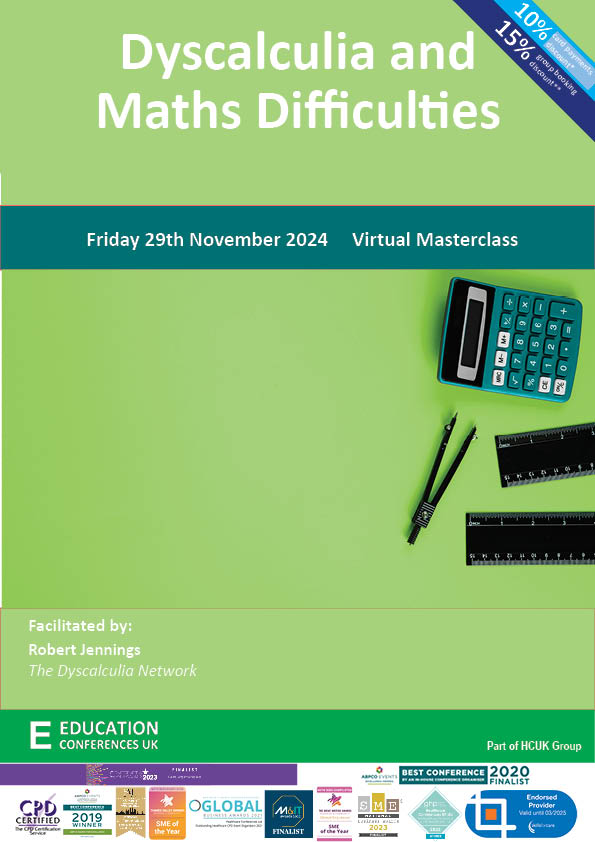To develop an understanding of what is Dyscalculia and maths difficulties and how it manifests itself both in the classroom and at home. We will also provide an outline of strategies to help overcome this condition.
Dyscalculia is a developmental condition that specifically affects mathematical ability. People with Dyscalculia have poor mathematical ability after taking into account the education they may have had. Innumeracy due to absence, inadequate or patchy education is not the same as Dyscalculia, even though it may result in the same difficulties with maths.
Innumeracy is poor mathematics skills due to a lack of education and/or skills practice, whereas Dyscalculia occurs despite sufficient education and time to practice these skills.
Dyscalculia is an often overlooked special educational need and therefore, there is little awareness and understanding of the effect of this condition on the individual. Research indicates that there are approximately 6% of the UK population with Dyscalculia, but many more with maths difficulties.
There is also a shortage of assessors and specialist maths teachers to help overcome the difficulties that this condition presents.
KEY LEARNING OBJECTIVES
This masterclass will enable you to:
Definitions of both dyscalculia and maths difficulties
Prevalence in UK
Co-occurrence with other neuro-diverse conditions with an in-depth discussion on Maths Anxiety
Identify the indicators of dyscalculia in the classroom
Outline of assessment options for teaching intervention (including who can diagnose)
The nature of Maths Learning and the ‘Jenga effect’
Teaching strategies focusing on the four operations: addition, subtraction, multiplication and division, as well as Place Value
Case study of the impact of Dyscalculia on an adult.
WHO SHOULD ATTEND
Primary school teachers, Teaching Assistants, SENCo, Secondary school teachers of maths, FE teachers and lecturers, School Leaders, Head of Departments, Parents of children affected by these conditions and dyscalculic adults.
FACILITATOR
Rob is the co-founder of The Dyscalculia Network. (www.dyscalculianetwork.com )
The Dyscalculia Network provides training and advice for teachers and parents of pupils who have maths difficulties. He has over 15 years of experience teaching young people with special needs. Over the past ten years, he has focused specifically on helping children struggling with Maths working in both independent and state schools.
As Head of Maths at Emerson House LLP and Head of Learning Support at Westminster Abbey Choir School, Rob worked alongside educators and with parents to create and deliver personalised intervention plans for pupils. Since leaving Emerson House, he has set up a number of Maths inset training and lesson support in a number of West London schools.
Rob is a member of The British Psychological Society, as a Certified Educational Assessor (including Access Arrangements). He holds an OCR Level 5 Diploma in Teaching Learners with Specific Learning Difficulties (Distinction) from Helen Arkell and is co-author of The Maths Difficulties and Dyscalculia Assessment, designed to identify the strengths and weaknesses of an individual to help formulate a teaching intervention plan.
In December 2023, Rob was voted onto the Crested Council (https://crested.org.uk/index.html) to represent issues about Dyscalculia and Maths Difficulties throughout specialist schools in this country.
In 2024, Rob has co-authored (with Jane Emerson), ‘The Maths and Dyscalculia Assessment’. This is being published by Jessica Kingsley in Spring of 2025. This is a unique test that not only collects information on scoring accuracy, but also looks into techniques and strategies used to tackle the important areas of foundation maths.




